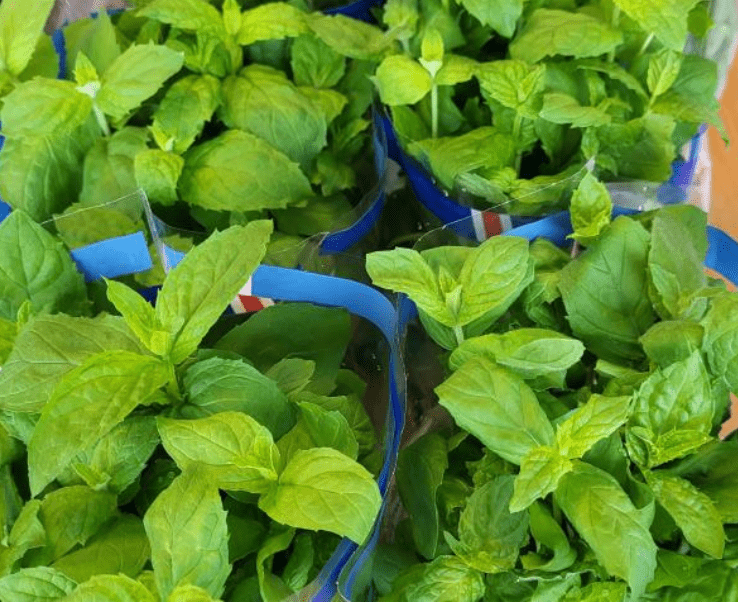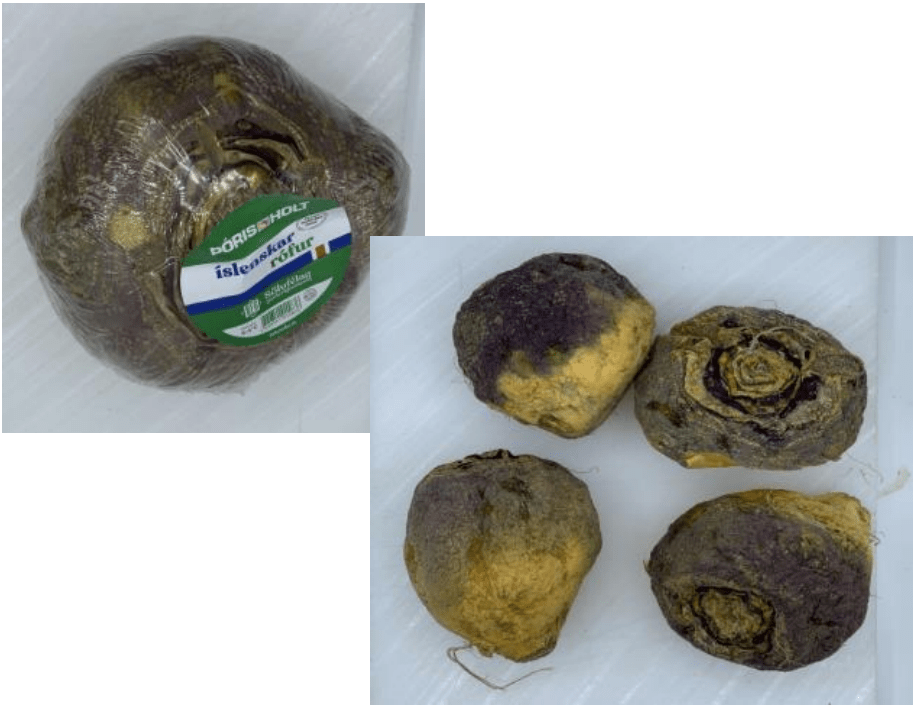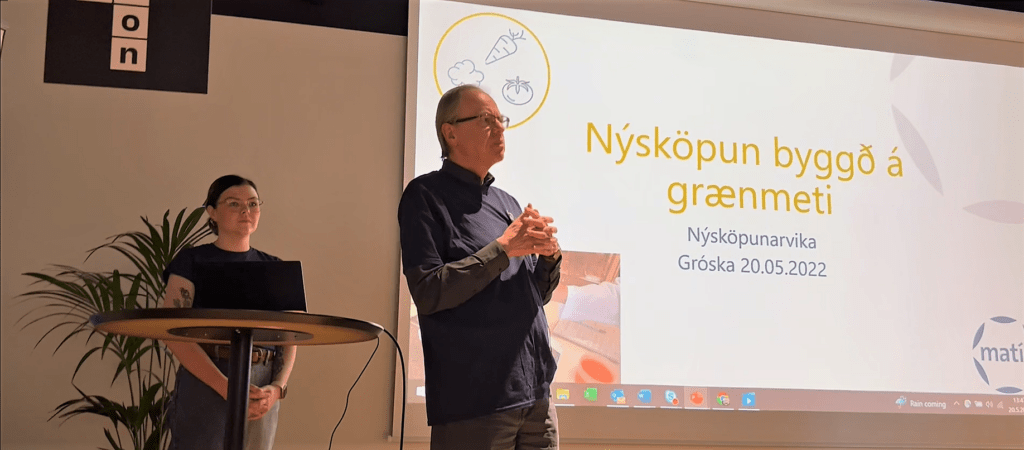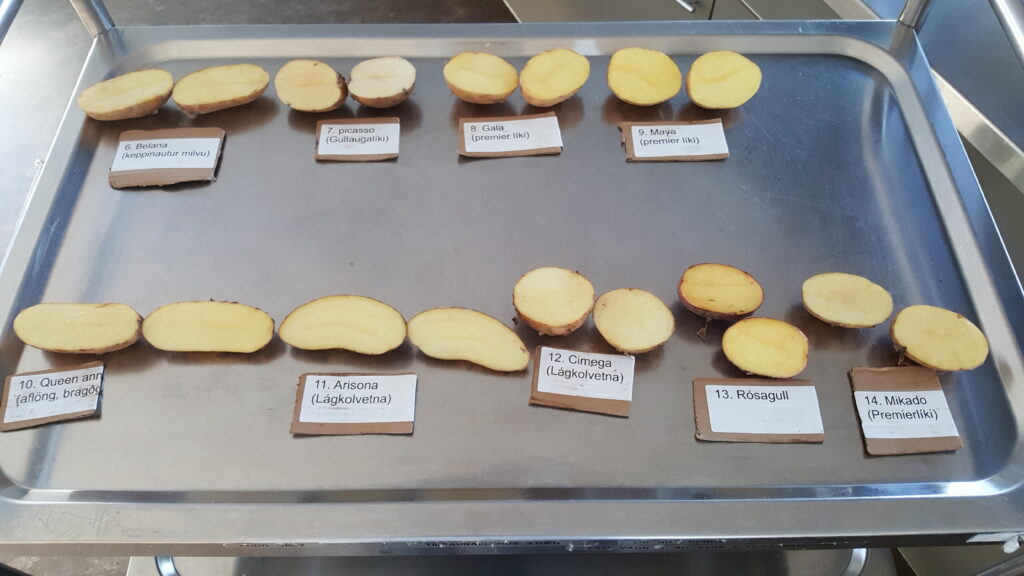The project Vegetable value chain started at Matís in 2021 with a grant from the Food Fund. The project considered the quality and shelf life of Icelandic vegetables, as well as exploring new opportunities for making use of by-products. The project has now been completed and the results have been published in four reports. Project manager Ólafur Reykdal and expert Eva Margrét Jónudóttir tell us about the project and its significance for stakeholders.
Increased value creation in the business world
The aim of the project was to improve the quality, shelf life and reduce waste in the value chain of Icelandic vegetables in order to promote the vegetable sector in Iceland with new knowledge and increase the quality of production. The main subjects of the project were shelf-life studies, investigations of ways to create value from by-products, and analysis of ways to reduce shrinkage in the value chain. The project exceeded expectations and new practical information is now available. It is interesting to wonder why it was decided to start this project in the beginning?
"It is in line with Matís' role to increase value creation in the business world. Not much has been done for the vegetable sector, so there was reason to improve it," explains Ólafur Reykdal.
Interesting results and far-reaching implications
The project has now been completed and reports have been published on Matís' website. The results are diverse and the project provides increased knowledge that will be useful to business partners.
The results of measuring the chemical content of potatoes may surprise many. It turned out that there were more antioxidants in the potatoes than expected and different amounts of carbohydrates (9-20%) depending on the potato varieties. The lower the percentage of carbohydrates, the fewer the calories in the potatoes. In light of the antioxidants, it can be said that the healthiness of potatoes has been underestimated. The impact of these results did not stop, and the potato farmers in Þórustaðir responded in the following way:
"The project led to potato farmers in Þórustaðir in Eyjafjörður revising the labels on their products, and a special chemical composition was revealed for new potato varieties that the farmers had taken up for cultivation," says Ólafur Reykdal.
Common herbs were also studied. Herbs are extremely healthy, as they are full of vitamins and minerals and are used to flavor food. "The project demonstrated the high antioxidant activity of herbs and the importance of storing them in the right conditions. A leaflet was prepared which has been distributed," explains Ólafur Reykdal. You can access the leaflet here at the bottom of the news.

"We compared vegetables wrapped in plastic and unwrapped vegetables for up to 12 weeks. There was a decisive difference between the lightness of packaged and unpackaged vegetables, this was especially noticeable for carrots. The quality of beets in plastic film was maintained for at least 12 weeks and they did not lose weight," explains Ólafur. A leaflet was prepared with the results, which those interested can access here at the bottom of the news.

"Packaged broccoli received good quality ratings for seven weeks, but unpackaged broccoli lasted much less. For more types of vegetables, refer to reports."

"Various checks were made on the vegetable supply chain. Temperatures were measured with thermometers during transport of vegetables around the country. Weak links were revealed especially in distribution centers and shops in rural areas. The relevant parties were notified and hopefully they have worked on fixes. "Suggestions were put forward on how to reduce the deterioration of vegetables in the value chain," says Ólafur Reykdal.
The results of the potato measurements were surprising
"Surprisingly, more antioxidants were measured in potatoes than in various brightly colored vegetables. It was interesting how high a percentage of minerals could be found in vegetable by-products. For example, there is relatively more minerals in dry matter from side products (leaves) than in common vegetables. This indicates that more minerals can be found in side products than in common vegetables, and thus exciting possibilities for the processing of that raw material.

Another thing that caught my eye was how common it is for horses to be partially fed on horticultural by-products without any apparent harm. Someone could claim that by using various by-products in feed, there could be a toxic effect, but according to our sources, this does not seem to be the case based on the amount of by-products that are used in feed in this country.
It was also a real surprise how much perfectly good vegetables are wasted because the market can't accept them all when they're at their freshest. Although we always want to try to reduce plastic use as much as possible, at the same time we want to reduce food waste by increasing shelf life. As the results of this project indicate, the shelf life of vegetables can be significantly increased by packaging, and therefore it can be said that packaging in this case truly prevented wastage. It will probably be possible to reduce the use of plastic with new packaging materials," says Eva Margrét.
New opportunities following a successful project
The project has resulted in two exciting projects. On the one hand, a project about the challenges of packing vegetables, and on the other hand, a project that deals with the value of horticulture by-products. Both projects have received funding from the Swedish Food Fund.
The project on the challenges of packaging vegetables started in 2022. "It is hoped that the results of this project will help in the selection of packaging materials and packaging methods," explains Ólafur
The foundation has been laid for new research on the by-products of horticulture aimed at the production of valuable products, a grant has been received from the Food Fund and it is estimated that the project will start in 2022. when defoliating tomato and cucumber plants, leaves of outdoor vegetables such as cauliflower, broccoli, turnips, carrots, leaves and stems from floriculture. In addition, the basis for improved utilization of second-class products and excess amounts of carrots will be examined. Biomaterials and bioactive substances will be isolated from each biomass and the amount, bioactivity properties and processing properties will be studied with the aim of being used as ingredients in new products," explains Eva Margrét.
Special thanks to partners in the project: Gardeners' Sales Association, the gardeners' section of the Farmers' Association, the Agricultural Advisory Center, the Samkaup retail chain and numerous gardeners.
Below you can find the four reports:
- Report 1: Improved quality, shelf life and less waste in the value chain of Icelandic vegetables, click here
- Report 2: By-products of vegetable production, click here
- Report 3: Analysis of Atrophy in Vegetable Value Chain, click here
- Report 4: Shelf life and deterioration in the vegetable value chain, click here
Single leaf Herbs- Healthy but delicate, can be found here
The single leaf packaging of carrots preserves quality and prevents water loss, it can be found here
Projects on vegetables are carried out in various areas at Matís, but fall under the service category Vegetables and grains. If you are interested in learning more about research and innovation in that service category, you can access information by clicking here: https://matis.is/thjonustuflokkar/graenmeti-og-korn/

